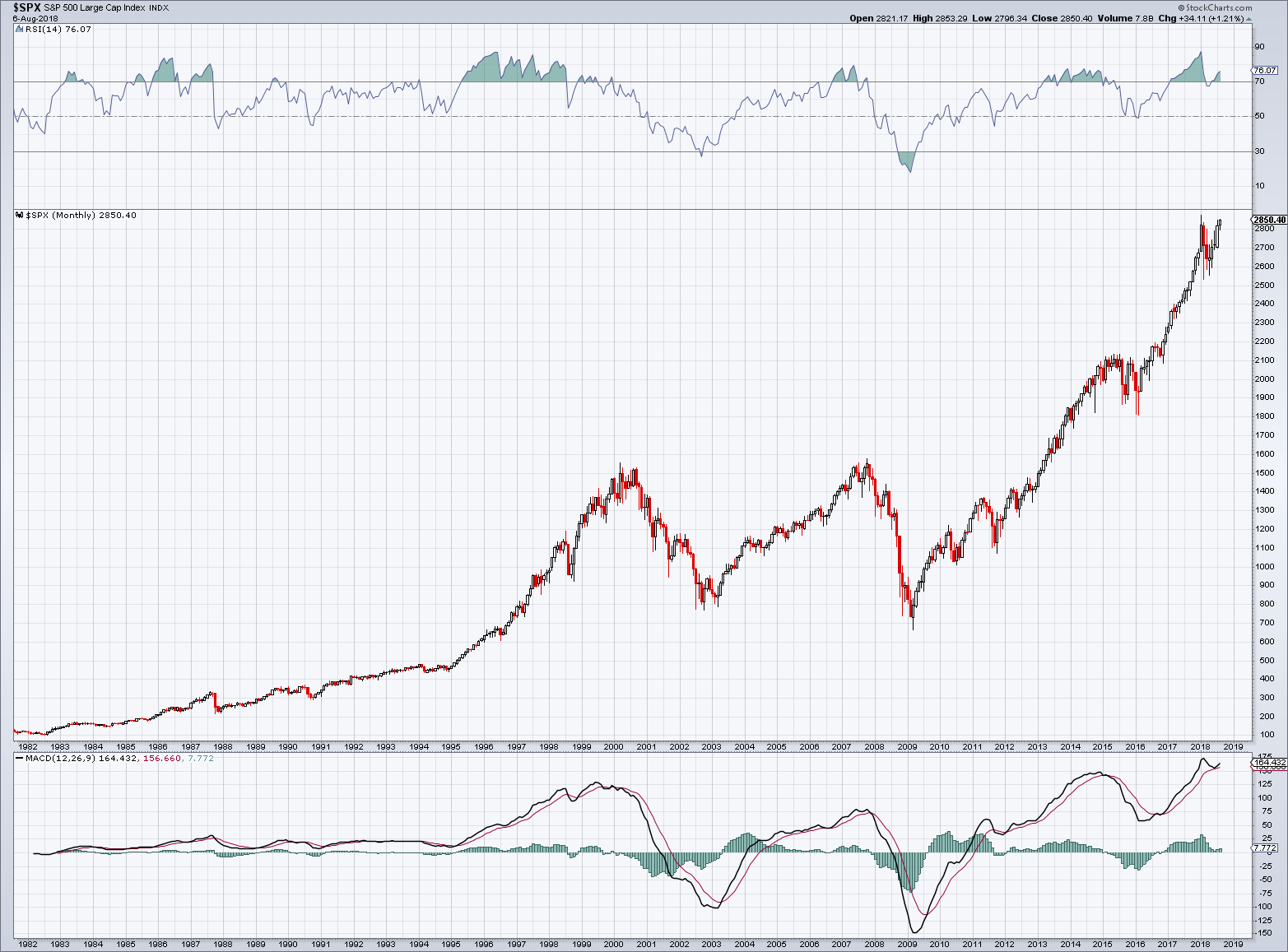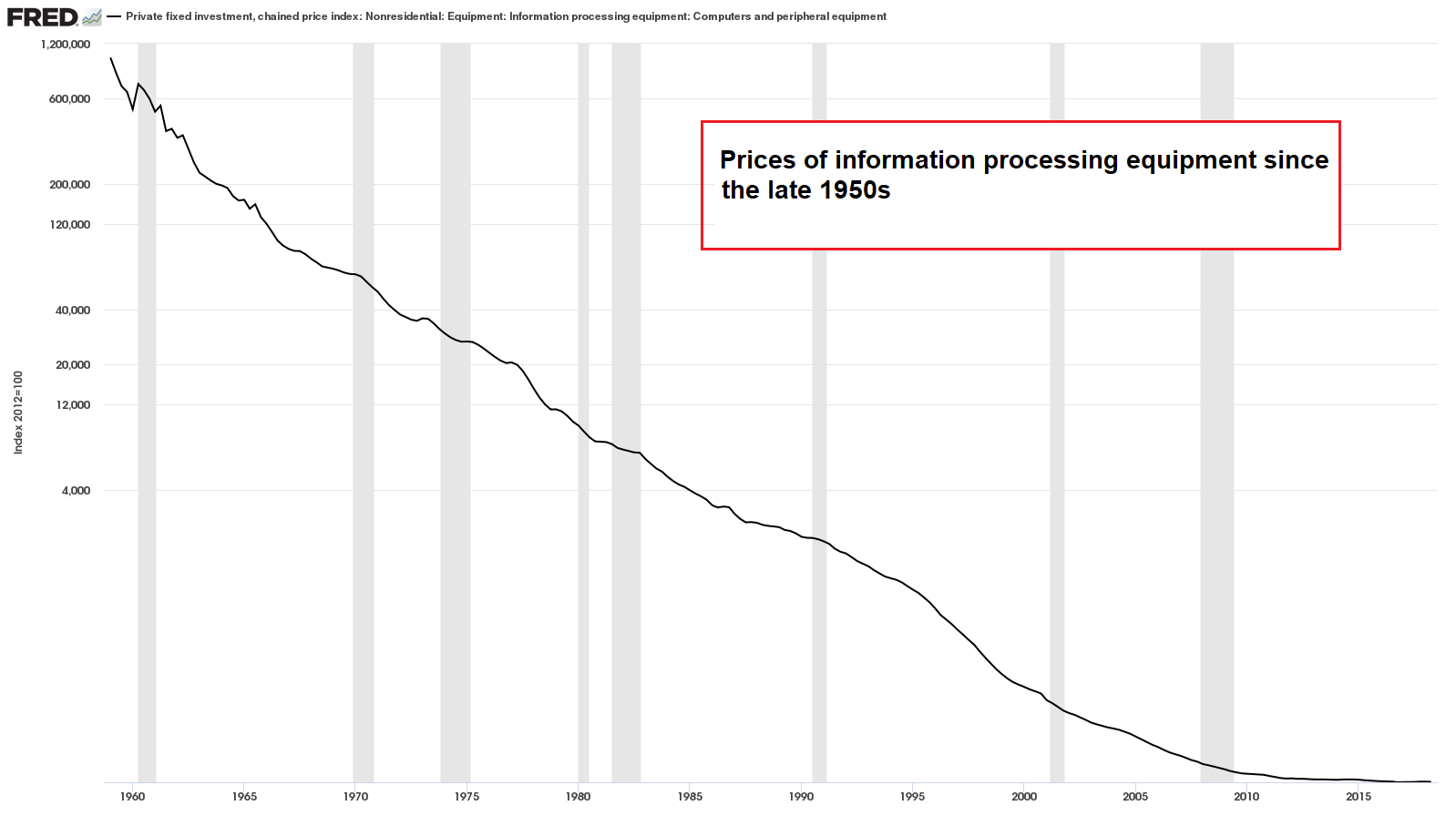Incrementum Advisory Board Discussion Q3 2018 with Special Guest Kevin Duffy “From a marketing perspective it pays to be overconfident, especially in the short term. The higher your conviction the easier it will be to market your investment ideas. I think the Austrian School is at a disadvantage here because it’s more difficult to be confident about your qualitative predictions and even in terms of investment advice it is particularly difficult to be confident in these times because we don’t really have any historical precedents we can analyze and draw conclusions from. Rahim Taghizadegan As always, the discussion at the Incrementum Q3 Advisory Board meeting covered a wide range of subjects, with a special focus on
Topics:
Pater Tenebrarum considers the following as important: 6) Gold and Austrian Economics, 6b) Austrian Economics, Featured, newsletter, On Economy, On Politics
This could be interesting, too:
Nachrichten Ticker - www.finanzen.ch writes Die Performance der Kryptowährungen in KW 9: Das hat sich bei Bitcoin, Ether & Co. getan
Nachrichten Ticker - www.finanzen.ch writes Wer verbirgt sich hinter der Ethereum-Technologie?
Martin Hartmann writes Eine Analyse nach den Lehren von Milton Friedman
Marc Chandler writes March 2025 Monthly
Ivestment and speculation are mainly thymological quests – below are three brief excerpts from Human Action by Ludwig von Mises pertinent to this:
“The distinctive reasoning of the speculator is an understanding of the relevance of the various factors determining future events. And […] action necessarily always aims at future and therefore uncertain conditions and thus is always speculation. Acting man looks, as it were, with the eyes of a historian into the future.”
Elsewhere he notes:
“Those facts which can be established in an unquestionable way on the ground of the source material available must be established as the preliminary work of the historian. This is not a field for understanding. It is a task to be accomplished by the employment of the tools provided by all non-historical sciences.”
And lastly:
“In order to see his way in the unknown and uncertain future man has within his reach only two aids: experience of past events and his faculty of understanding. Knowledge about past prices is a part of this experience and at the same time the starting point of understanding the future.”
Ludwig von Mises, the dean of the Austrian School: all future-oriented action is essentially speculation and from a methodological perspective requires the application of the same techniques historians employ.
In these brief quotes Mises mentions all the tools which a speculator , whether he is an entrepreneur or an investor in financial markets – or putting it differently, a “historian of the future” – needs to perform his task:
Understanding – assigning the correct relevance to various data, this is to say the process of determining the unique and individual features of each investment case. This is a subjective procedure that cannot really be taught – it is a talent that some people have and others lack.
Conception – scientific knowledge, or in other words those features that are universally valid and apply to every case, which serve as a constraint to forecasts (in this case the laws of economics).
Statistics, or the data of past (particularly the history of prices), which serve as the starting point for the procedure of understanding. As Mises notes (see below), the very nature of this procedure implies that not everybody can be a successful entrepreneur or speculator.
Understanding in this sense cannot be systematized, rather it is based on a mixture of talent and experience (much of the “knowledge” it involves is likely tacit and cannot even be fully articulated by those who have it). Moreover, Mises writes that those most likely to succeed will usually hold opinions about the future that deviate from those “held by the crowd” – in other words, it is to be expected that contrarian and/or unconventional thinking are most likely to lead to success:
“Th[e] specific anticipative understanding of the conditions of the uncertain future defies any rules and systematization. It can be neither taught nor learned. If it were different, everybody could embark upon entrepreneurship with the same prospect of success. What distinguishes the successful entrepreneur and promoter from other people is precisely the fact that he does not let himself be guided by what was and is, but arranges his affairs on the ground of his opinion about the future. He sees the past and the present as other people do; but he judges the future in a different way. In his actions he is directed by an opinion about the future which deviates from that held by the crowd.”
The talent required for successful understanding of the factors influencing the future state of the market varies from individual to individual and is at least partly an inherited trait, but it is certainly the case that most “Austrians” are contrarians. With respect to conceptual knowledge, we would argue that Austrian praxeological theory provides the best and most useful forecasting constraints.
Download Link: An Inquiry into Austrian Investing: Profits, Protection and Pitfalls – Incrementum Advisory Board Discussion, Q3 2018 (PDF)
Charts by: StockCharts, St. Louis Fed
Tags: Featured,newsletter,On Economy,On Politics




